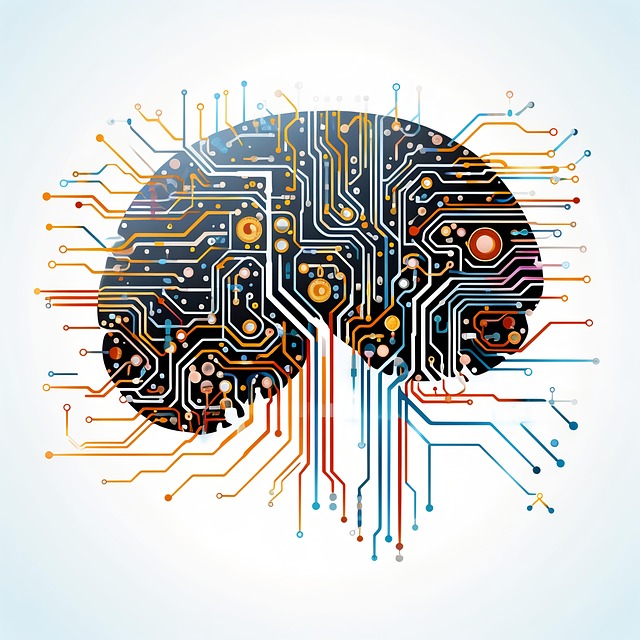Digital Marketing leverages powerful tools like SEO, social media, and display ads for effective audience engagement. By understanding consumer behavior, data analysis, and creative strategies, marketers can precisely target demographics and optimize campaigns for maximum ROI. Advanced analytics provide valuable insights, enabling continuous improvement and informed decision-making. Creative approaches such as storytelling, personalization, and immersive technologies enhance brand experiences. Ethical considerations like privacy protection and transparency are crucial for successful digital marketing. AI and ML drive future innovations, transforming online advertising with personalized, immersive experiences.
Online advertising solutions have transformed how businesses connect with consumers, making digital marketing an indispensable tool. This article delves into the multifaceted world of online advertising, exploring its core concepts and strategies. We examine the benefits and impact of digital marketing, from precise audience targeting to creative campaign approaches. Additionally, we discuss key metrics for evaluation, ethical considerations, and emerging trends shaping the future of digital marketing.
Understanding Online Advertising Solutions in Digital Marketing

Online advertising solutions have become a cornerstone of modern Digital Marketing strategies. In today’s digital era, understanding how these solutions work is crucial for businesses aiming to reach their target audience effectively. From search engine optimization (SEO) to social media marketing and display ads, each channel offers unique opportunities to engage with potential customers.
Effective online advertising requires a deep dive into consumer behavior, data analysis, and creative strategies. By leveraging tools that track user interactions and preferences, marketers can tailor campaigns for maximum impact. In terms of ROI, digital advertising solutions provide tangible results, allowing businesses to measure success in real-time and make informed adjustments to their marketing mix.
The Benefits and Impact of Digital Marketing Strategies

The rise of digital marketing has transformed the landscape of advertising, offering businesses unprecedented opportunities to reach their target audience globally. Online advertising solutions have become a powerful tool for brands to connect with consumers in an increasingly digital world. By leveraging Digital Marketing strategies, companies can effectively communicate their value proposition, build brand awareness, and drive sales. One of its key advantages is the ability to precisely target specific demographics and interests, ensuring that marketing efforts are not wasted on the wrong audience.
Additionally, digital marketing provides valuable insights and data that enable businesses to measure campaign performance and make informed decisions. Through advanced analytics, companies can track customer behavior, understand engagement levels, and optimize their strategies accordingly. This data-driven approach allows for continuous improvement, ensuring that advertising budgets are utilized efficiently. As a result, Digital Marketing has become an indispensable component in today’s competitive business environment, where staying visible and relevant online is crucial for success.
Targeting Audiences: Precision in Online Advertising

In the realm of digital marketing, precise targeting of audiences is a game-changer. Online advertising solutions leverage sophisticated algorithms and extensive data to pinpoint specific user demographics, interests, and behaviors, ensuring that ads reach the right people at the right time. This level of precision allows businesses to maximize their marketing ROI (return on investment) by avoiding wasteful spending on irrelevant audiences.
By understanding user preferences and trends, digital marketers can create highly tailored campaigns that resonate with target audiences. This strategic approach not only enhances ad effectiveness but also fosters stronger connections between brands and consumers, leading to increased engagement, conversions, and brand loyalty in the competitive online landscape.
Creative Approaches to Online Ad Campaigns

In the realm of digital marketing, creativity is the key to standing out in a crowded online space. Instead of relying solely on traditional banner ads, businesses are now embracing innovative and interactive strategies to capture their target audience’s attention. One effective approach involves storytelling—weaving narratives that emotionally connect with viewers, making products or services memorable. This could be through short videos, animated infographics, or even interactive quizzes that offer tailored product recommendations. By integrating storytelling into online ad campaigns, brands can foster a deeper engagement with their customers.
Another creative angle is personalization, where ads adapt to individual users’ behaviors and preferences. Using data-driven insights, companies can deliver targeted messages, ensuring that each customer sees content relevant to them. Personalized emails, dynamic product recommendations on e-commerce sites, or even geo-targeted ads on social media platforms are some examples. Such creative approaches not only enhance the effectiveness of online advertising but also build a stronger relationship between brands and their consumers in today’s competitive digital landscape.
Measuring Success: Key Metrics for Evaluation

In the realm of digital marketing, measuring success is paramount to understanding the effectiveness of online advertising solutions. Key metrics play a crucial role in evaluating the performance and return on investment (ROI) of marketing campaigns. Among these, click-through rates (CTR) stand out as a fundamental indicator, reflecting the number of clicks on an ad relative to its impression count. A high CTR suggests that ads are resonating with audiences, driving them to take action.
Another vital metric is conversion rate, which measures the percentage of website visitors who complete a desired action, such as making a purchase or signing up for a newsletter. By tracking conversions, marketers can gauge how well their campaigns drive business outcomes. Additionally, cost per acquisition (CPA) and cost per click (CPC) provide insights into the financial efficiency of advertising efforts. Lower CPA and CPC indicate higher profitability, suggesting that marketing strategies are effectively reaching target audiences at a minimal cost.
Ethical Considerations and Best Practices in Digital Ads

In the realm of digital marketing, where algorithms and data drive decision-making, ethical considerations are paramount. Advertisers must ensure their strategies respect user privacy, avoid deceptive practices, and foster transparency. This includes obtaining informed consent for data collection, providing clear opt-out options, and being genuine in representing products or services. Compliance with data protection regulations like GDPR and CCPA is not just a legal imperative but also builds consumer trust.
Best practices involve tailoring ads to specific audiences without targeting vulnerabilities. Personalization should enhance user experiences rather than manipulate emotions. Additionally, advertisers should strive for authenticity in creative content, avoiding stereotypes or offensive imagery. Continuous monitoring and adjustments are necessary to ensure ad campaigns remain relevant, respectful, and compliant with evolving digital marketing standards.
Future Trends Shaping Online Advertising Solutions

The future of online advertising is being shaped by rapid advancements in digital marketing technologies, with artificial intelligence (AI) and machine learning (ML) taking center stage. AI-driven platforms are enhancing targeting capabilities by analyzing vast consumer data, enabling advertisers to reach their ideal audiences more precisely. Personalized ad experiences are becoming the norm, as algorithms adapt content based on individual user preferences and behaviors. This trend not only improves engagement rates but also fosters trust between brands and consumers in the digital marketing realm.
Furthermore, with the rise of voice search and virtual assistants, online advertising is evolving to accommodate these new interactions. Marketers are optimizing their strategies for voice-enabled devices, focusing on natural language keywords and conversational ad formats. Additionally, augmented reality (AR) and virtual reality (VR) technologies are opening up innovative ways to create immersive advertising experiences, blurring the lines between the physical and digital worlds in Digital Marketing.
